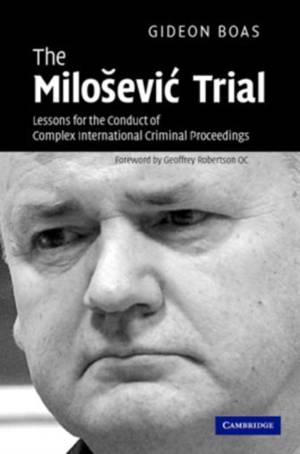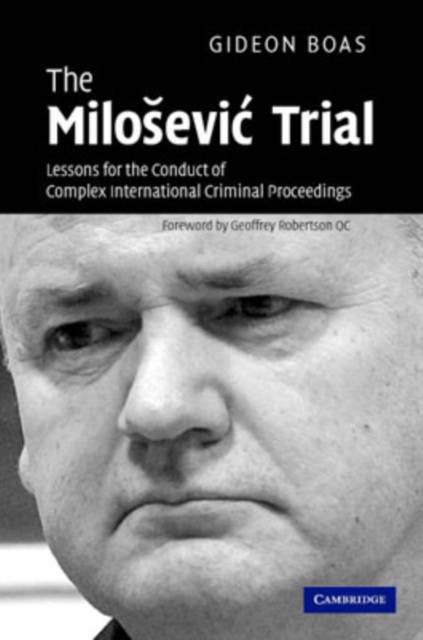
Bedankt voor het vertrouwen het afgelopen jaar! Om jou te bedanken bieden we GRATIS verzending (in België) aan op alles gedurende de hele maand januari.
- Afhalen na 1 uur in een winkel met voorraad
- In januari gratis thuislevering in België
- Ruim aanbod met 7 miljoen producten
Bedankt voor het vertrouwen het afgelopen jaar! Om jou te bedanken bieden we GRATIS verzending (in België) aan op alles gedurende de hele maand januari.
- Afhalen na 1 uur in een winkel met voorraad
- In januari gratis thuislevering in België
- Ruim aanbod met 7 miljoen producten
Zoeken
The Milosevic Trial
Lessons for the Conduct of Complex International Criminal Proceedings
Gideon Boas
Hardcover | Engels
€ 187,45
+ 374 punten
Uitvoering
Omschrijving
When Slobodan Milosevic died in the United Nations Detention Unit in The Hague over four years after his trial had begun, many feared - and some hoped - that international criminal justice was experiencing some sort of death itself. Yet the Milosevic case, the first trial of a former head of state by a truly international criminal tribunal and one of the most complex and lengthy war crimes trials in history, stands for much in the development and the future of international criminal justice, both politically and legally. This book, written by the senior legal advisor working for the Trial Chamber, analyses the trial to determine what lessons can be learnt that will improve the fair and expeditious conduct of complex international criminal proceedings brought against former heads of state and senior political and military officials, and develops reforms for the future achievement of best practice in international criminal law.
Specificaties
Betrokkenen
- Auteur(s):
- Uitgeverij:
Inhoud
- Aantal bladzijden:
- 328
- Taal:
- Engels
Eigenschappen
- Productcode (EAN):
- 9780521876995
- Verschijningsdatum:
- 6/09/2007
- Uitvoering:
- Hardcover
- Formaat:
- Ongenaaid / garenloos gebonden
- Afmetingen:
- 161 mm x 229 mm
- Gewicht:
- 703 g

Alleen bij Standaard Boekhandel
+ 374 punten op je klantenkaart van Standaard Boekhandel
Beoordelingen
We publiceren alleen reviews die voldoen aan de voorwaarden voor reviews. Bekijk onze voorwaarden voor reviews.









